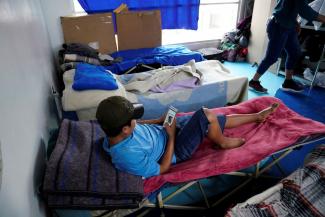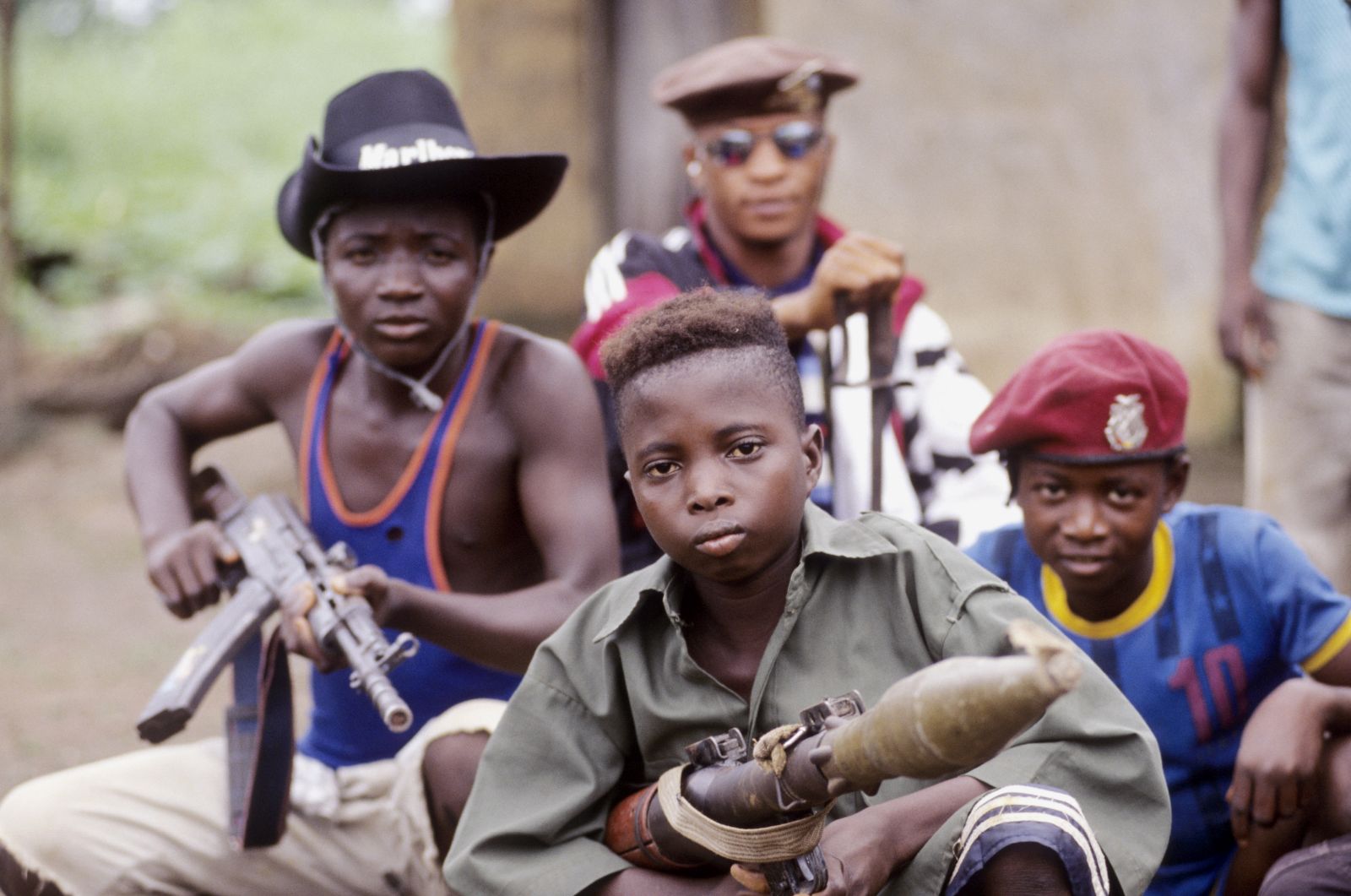Refugee children
A lonely battle

What happens to unaccompanied minors when they reach their destination countries depends on those countries’ laws and institutions. Some take care of the children from the start, putting them in suitable temporary shelters and doing everything possible to find appropriate host families or institutions for the long term. Others view the arrivals as problems to be disposed of as quickly as possible.
The surge of unaccompanied minors from Latin America into the US in the past year has cast a spotlight on how not to deal with unaccompanied children requesting asylum. The influx caught US officials by surprise; their facilities were not prepared to handle it. The result was massive bad publicity about refugee children sleeping in temporary holding pens and denied adequate food and care.
The fate of young arrivals sometimes depends as well on their countries of origin. Mexican children arriving in the US are generally sent home quickly – essentially denied asylum procedures. According to Amnesty International, the US Department of Homeland Security returned more than 95 % of unaccompanied Mexican children arriving between November 2020 and April 2021.
The swift deportation of unaccompanied Mexican children may be in keeping with US policy towards Mexico. But it also may violate the US’s own Trafficking Victims Protection Act of 2000, which aims to prevent human trafficking. If incoming minors from Mexico are sent right back home without an in-depth review of their circumstances, the deportation could deny them this legal protection.
The risk of immediate deportation does not stop many Mexican minors from trying their luck. The journey typically involves crossing the Rio Grande – with attendant dangers related to swift currents in some sections and toxic pollutants in others.
The lucky ones who make it across are usually stopped by the US Border Patrol, which screens them briefly for asylum claims and signs of human trafficking. Those who are not immediately designated for deportation are transferred to the Office of Refugee Resettlement, whose job is to find them shelters and/or homes while their claims are heard.
The Office of Refugee Resettlement funds some 200 state-licensed facilities across the US. These shelters try to find suitable sponsors – usually relatives who already live in the US or other foster parents. If no home can be found, the agency cares for the minors until age 18.
Fleeing wars
The reception for unaccompanied refugee minors is somewhat different in Eastern Africa. It is somewhat less bureaucratic, but is also less well organised and funded than in the west.
According to Unicef, the UN Children’s Emergency Fund, more than half of the approximately million refugees in Africa are children. Large proportions of them come from South Sudan, the Democratic Republic of Congo and the Central African Republic.
Unaccompanied minors often head for refugee camps in destination countries such as Kenya and Ethiopia. In these relatively safe destination countries, the lack of immigration and visa procedures relevant to minors can complicate the minors’ situation. In addition the camps tend to be overcrowded and with limited resources to support unaccompanied children.
Children who make it to one of the camps typically fled civil wars and survived harrowing journeys. One such group of child refugees became known as the “Lost boys of Sudan” – so named by health-care workers in the refugee camps that received them (see box).
No less dangerous is the journey faced by unaccompanied African child migrants crossing to North Africa, from which they hope to reach Europe via the Mediterranean. Refugee camps in North Africa provide sanctuary for many of them. But getting to these camps is far from easy: Many children faced violence, extortion, exploitation and neglect along the way.
As in the case of refugee camps in the Horn of Africa, the settlements for refugees hoping to leave North Africa for Europe often become semi-permanent residences for would-be asylum seekers. Even while living in officially recognised refugee settlements, refugee minors often lack attention and protection from violence. Nor is it easy for them to exercise their rights to seek asylum.
This situation contravenes specific protections afforded to children under international law. In its 1959 Declaration of the Rights of the Child, the United Nations said that children have a right to special protection for their physical, mental and social development. It also asserted every child’s right to be “protected against all forms of neglect, cruelty and exploitation“. The declaration was expanded into the 1989 UN Convention on the Rights of the Child, which has been accepted by all member countries behalf the USA.
Hundreds of thousands of children worldwide who have fled their homes and sought asylum still do not receive this special care. Rather than growing up in an environment of understanding and love by parents and society – as the Declaration says is their right – unaccompanied refugee minors typically live in poverty, fear and neglect.
An obvious candidate for improvement is the US system for dealing with unaccompanied refugee minors at its border facilities. Beyond that, destination countries should commit to creating better programmes for young, unaccompanied asylum seekers. That includes introducing safeguards to ensure good treatment at shelters, as well as providing children with access to legal advice about their asylum claims.
Children arriving alone from devastated regions also typically require counselling to deal with traumas they have suffered in their countries of origin and on their journeys. Governments should create institutions and programmes to ensure that such counselling is available.
Today’s children are tomorrow’s adults. If children grow up traumatised and neglected, that serves no one’s interest in the long term.
Qaabata Boru is an Ethiopian journalist and former resident of the Kakuma refugee camp in Kenya. He is the founder and editor-in-chief of Kakuma News Reflector (Kanere), a refugee-led online newspaper.
kakuma.news@gmail.com
https://kanere.org/











